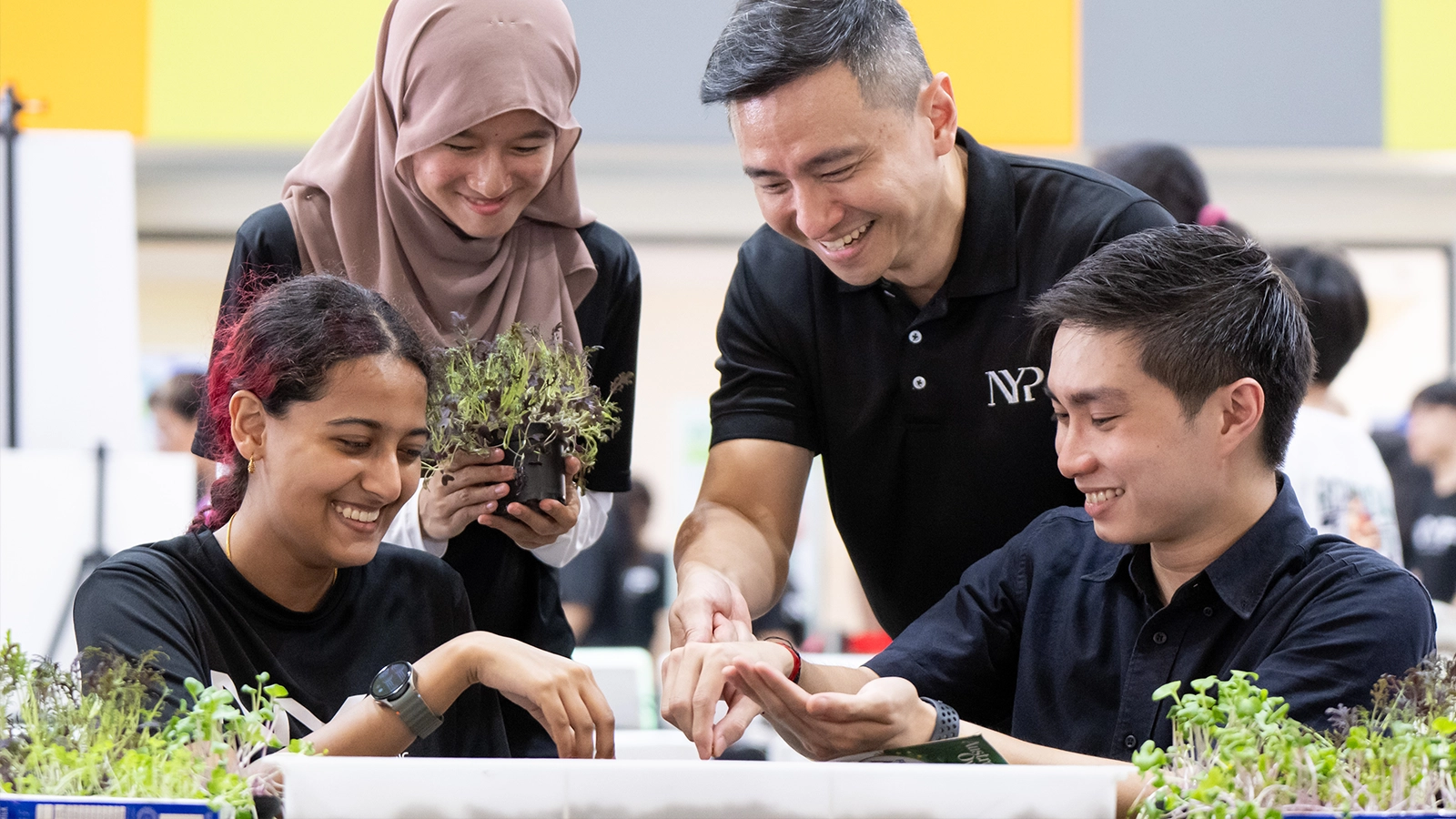Tracy Thia
Nurse turned Clinical Research Professional

Tracy graduated with a Diploma in Nursing from NYP in 1998
What makes you want to start your career as a nurse?
It all began with my holiday job at the age of 15. I worked in the catering department at National University Hospital (NUH), delivering food to patients. While some might view this as a mundane task, I saw it as a wonderful opportunity to connect with patients, and I absolutely loved it. Each interaction brought me joy, especially witnessing the compassionate care nurses provided to make patients feel valued and cared for. This experience ignited a passion in me for making a positive impact in healthcare.
Could you share the key learning points from your global experience?
I have transitioned into the Clinical Research industry since 2003. My career includes roles in institutions, global Contract Research Organisation (CRO), leading pharmaceutical companies, and biotech firms, covering country, regional, and global scopes.
Interacting with people from different cultural backgrounds was challenging but interesting. For example, Asians tend to be more reserved while Westerners are typically more outspoken. As Singaporeans, we need to learn how to increase our global visibility and adapt to diverse cultures. Singapore, being a multicultural society and a cosmopolitan city, coupled with our fluency in the English language, allows us to grow up with a wider worldview.

Reflecting on your academic journey, what was one fond memory at NYP that has significantly impacted your personal or professional development?
I have nostalgic memories of the old Outram campus from year 1996 to 1998 - a cozy place with a strong sense of camaraderie. Then, we felt immensely proud and a sense of completeness when we relocated to the new campus in Yio Chu Kang where we experienced the wonderful and up-to-date facilities.
My overall experiences at NYP have been holistic and enriching. The Polytechnic Forum and Leadership Training Camp enhanced my leadership skills, confidence, and interaction skills. Additionally, local clinical attachments and the Youth Expedition Projects (YEP) in Hong Kong provided valuable insights into the international healthcare industry – truly an eye-opener!
Based on your research and experience, what upcoming trends do you foresee, and how do you recommend students prepare for it?
1) Digital Transformation
The digital penetration applies across all industries as countries are moving towards a digitalised economy. Advanced development in medical technology has helped to create the ideal environment to maximise the use of medical devices (ie. developing the ecosystem). For example, telehealth and remote monitoring such as wearables. Noteworthily, AI and data analytics in healthcare also assist in predictive analytics, personalised medicine, and improving operational efficiency.
2) Person-centric Care
There is an increasing focus on personalised medicine such as Chimeric Antigen Receptor T-cell therapy (CAR-T) and precision medicine (ie. applying a person’s genetic profile to guide clinical decisions). Also, there is greater emphasis on holistic well-being and mental health.
3) Sustainability in Healthcare
Healthcare industry, due to its nature, generates substantial waste inevitably, particularly from single-use consumables. Hence, there are stresses to implement waste reduction strategies and promote recycling whenever possible. On the other hand, to support green initiatives, there is an increasing emphasis on building eco-friendly healthcare facilities that reduce electricity and water consumption.
As you can see, healthcare is ever evolving, and we cannot remain in status quo. To prepare, students should engage in continuous learning, develop tech and soft skills, consider specialisations, and stay adaptable in a constantly evolving healthcare industry.
What is the quote that you deeply resonate with that can inspire current students?
“The more that you read, the more things you will know. The more that you learn, the more places you'll go." (Dr. Seuss) – your career path may not necessarily follow what you have learned in your first diploma. For instance, my transition from the healthcare to the pharmaceutical industry. Continue to learn and broaden your perspectives and explore other opportunities as you gain more knowledge.


